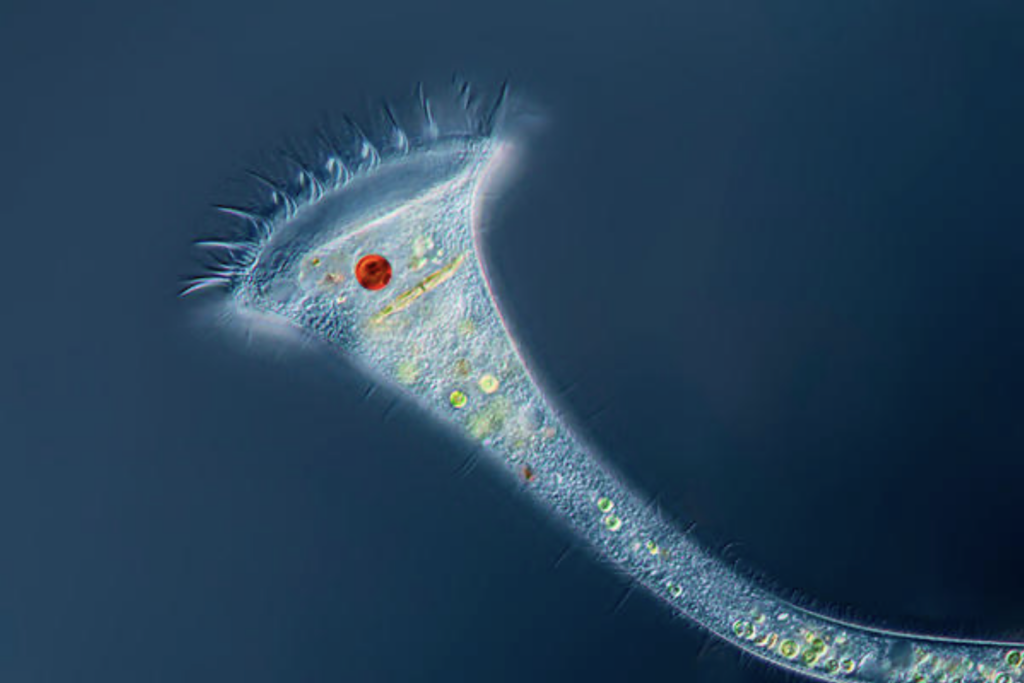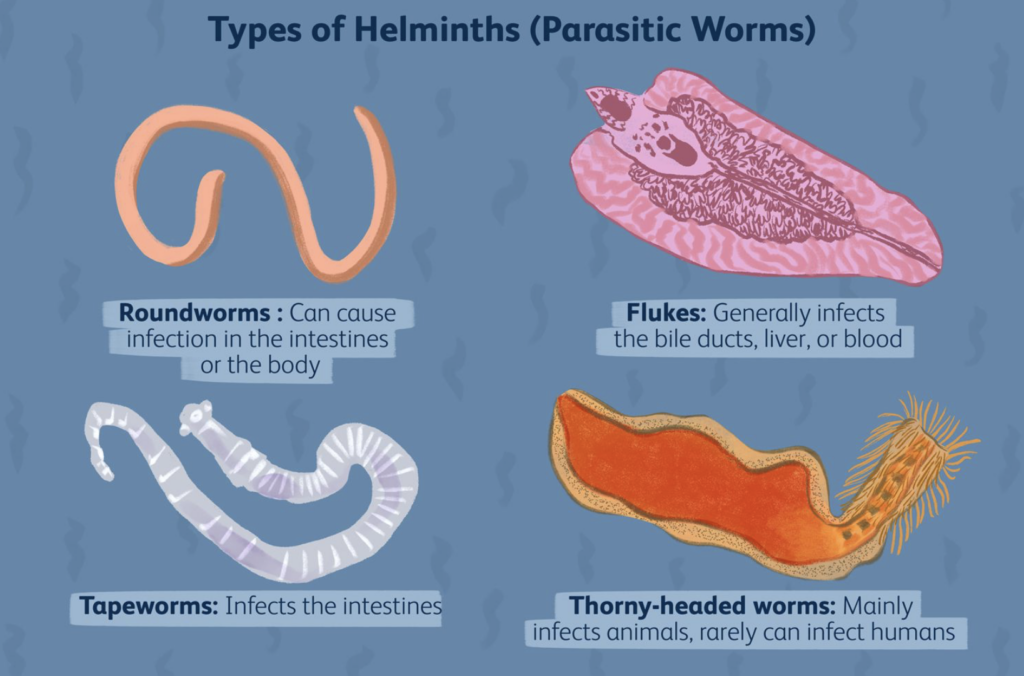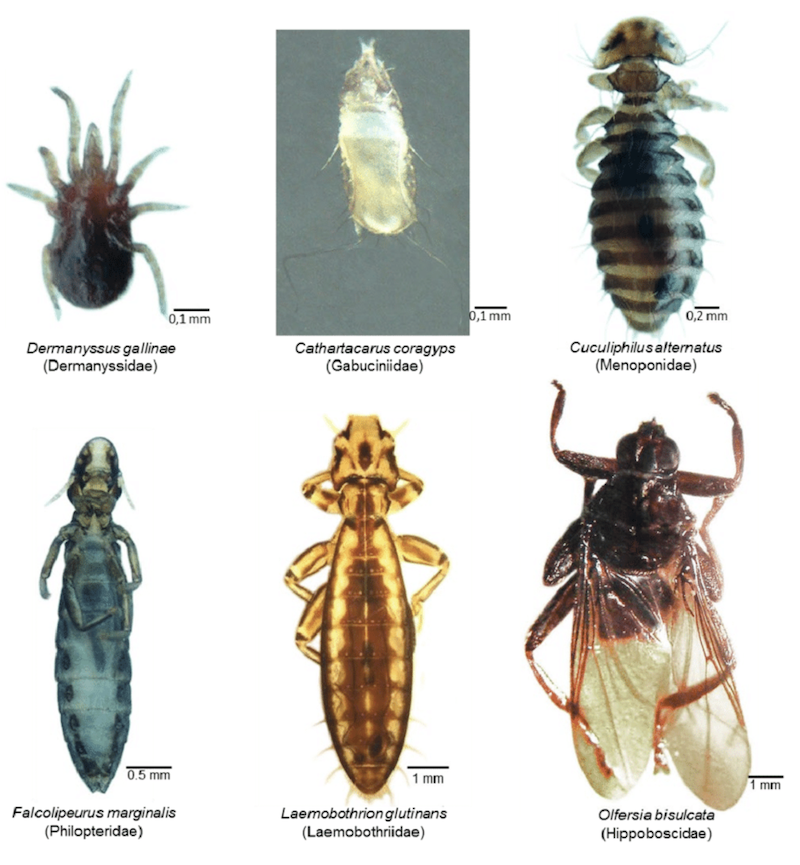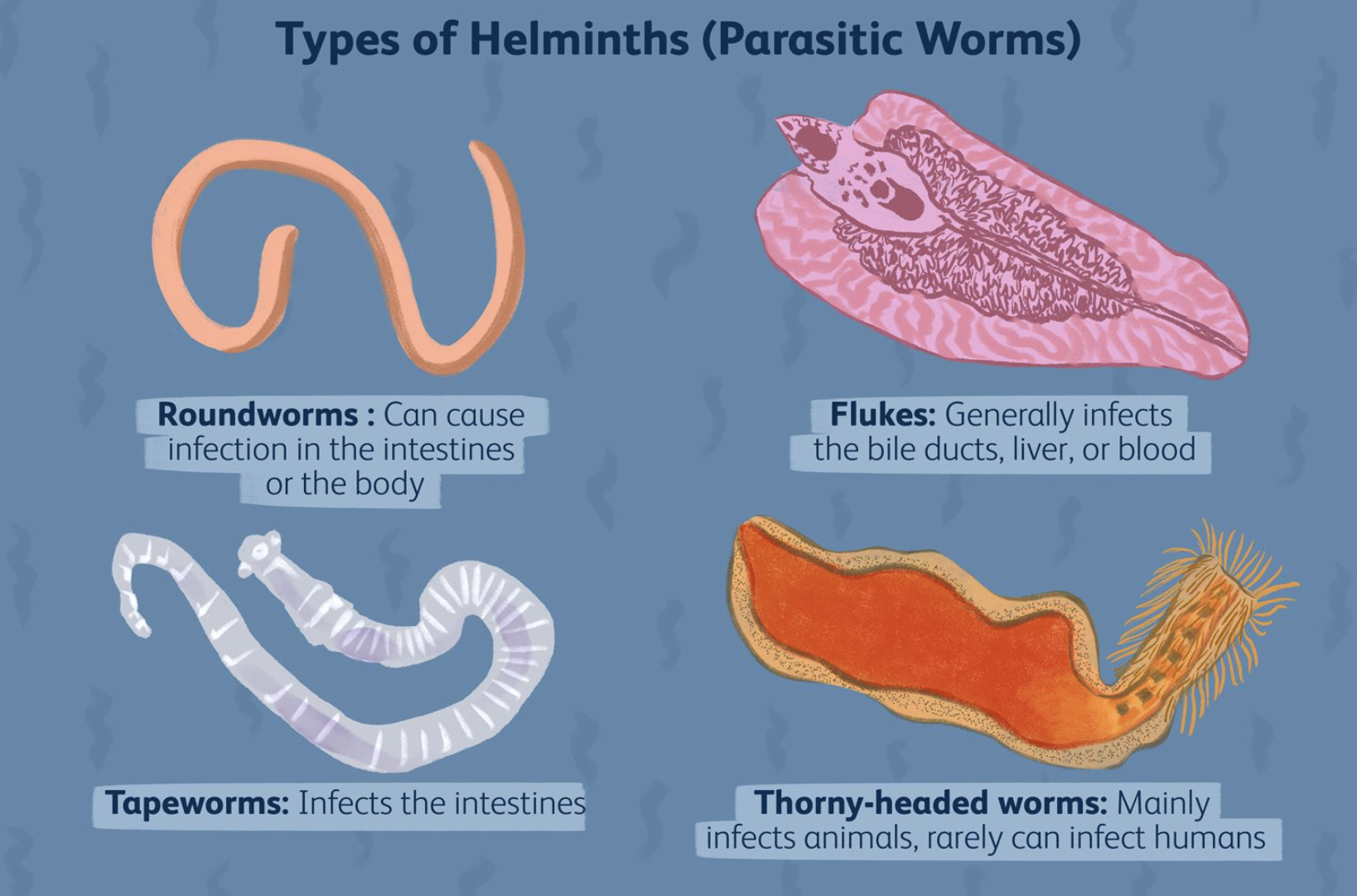Parasites are organisms that live on or inside another organism, known as the host, from which they obtain nutrients at the host’s expense. These unwelcome guests can cause a range of health issues, from mild discomfort to severe illness. Understanding the different types of parasites, their symptoms, and how they impact overall health is crucial for maintaining well-being. In this post, we’ll delve into the world of parasites and provide insights on how to identify and address them.
Types of Parasites
Parasites can be broadly classified into three main categories: protozoa, helminths, and ectoparasites.
1. Protozoa:
These are single-celled organisms that can multiply within the host. Examples include Giardia, which causes giardiasis, and Plasmodium, responsible for malaria.
Symptoms: Diarrhea, abdominal cramps, nausea, and fatigue.

2. Helminths:
These are multicellular worms that live inside the host. Common types include roundworms, tapeworms, and flukes.
Symptoms: Abdominal pain, diarrhea, anemia, and malnutrition. In severe cases, they can cause blockages in the intestines.

3. Ectoparasites:
These parasites live on the surface of the host. Examples include lice, fleas, and ticks.
Symptoms: Itching, redness, and irritation at the site of attachment. They can also transmit diseases like Lyme disease and Rocky Mountain spotted fever.

How Parasites Affect Your Health
Parasites can have a wide range of effects on your health, depending on the type and severity of the infection. Here are some common ways in which parasites can impact your well-being:
1. Digestive Issues:
Parasites often target the digestive system, leading to symptoms such as diarrhea, constipation, gas, and bloating. Chronic infections can cause more severe issues like malabsorption of nutrients, leading to weight loss and nutrient deficiencies.
2. Fatigue and Weakness:
Parasites can deplete your body of essential nutrients, leading to chronic fatigue and weakness. The immune response to a parasitic infection can also drain your energy.
3. Immune System Suppression:
Long-term parasitic infections can weaken the immune system, making you more susceptible to other infections and diseases.
4. Skin Problems:
Ectoparasites, such as lice and scabies, can cause itching, redness, and skin infections. Some internal parasites can also lead to skin rashes and allergic reactions.
5. Neurological Symptoms:
In rare cases, parasites can affect the nervous system, leading to symptoms such as headaches, seizures, and cognitive impairment.
Identifying Parasitic Infections
Identifying a parasitic infection can be challenging, as symptoms often overlap with other common health issues. However, there are several signs and diagnostic methods that can help:
Common Symptoms:
Look out for persistent digestive issues, unexplained fatigue, skin irritations, and signs of nutrient deficiencies. If you have travelled to areas known for parasitic infections or have been exposed to contaminated food or water, consider the possibility of a parasitic infection.
Medical Tests:
Stool Tests: These tests can identify the presence of protozoa and helminths in the
digestive tract.
Blood Tests: Blood tests can detect specific antibodies or antigens related to parasitic
infections.
Imaging: In some cases, imaging tests like X-rays, MRI, or CT scans may be used to detect parasitic infections affecting internal organs.
Prevention and Treatment
Preventing parasitic infections involves a combination of good hygiene practices, safe food and water consumption, and protective measures against insect bites. Here are some tips:
Maintain Good Hygiene:
Wash your hands regularly with soap and water, especially before eating and after using the bathroom.
Food and Water Safety:
Drink clean, filtered water and avoid consuming raw or undercooked meat and fish. Wash fruits and vegetables thoroughly before eating.
Protection from Insects:
Use insect repellent, wear protective clothing, and sleep under insecticide-treated bed nets in areas where parasites like mosquitoes and ticks are common.
Regular Health Check-ups:
Regular check-ups and screenings can help detect parasitic infections early and ensure timely treatment.
Treatment Options:
Treatment for parasitic infections depends on the type of parasite and the severity of the infection. Common treatments include antiparasitic medications, which are effective in eliminating most protozoa and helminths.
In addition to conventional treatments, holistic approaches such as herbal remedies, dietary changes, and probiotics can support overall health and aid in recovery.
Conclusion
Parasites are a hidden health threat that can significantly impact your well-being. Understanding the types of parasites, their symptoms, and how they affect your health is essential for prevention and early intervention. If you suspect a parasitic infection, seek professional medical advice for proper diagnosis and treatment.







